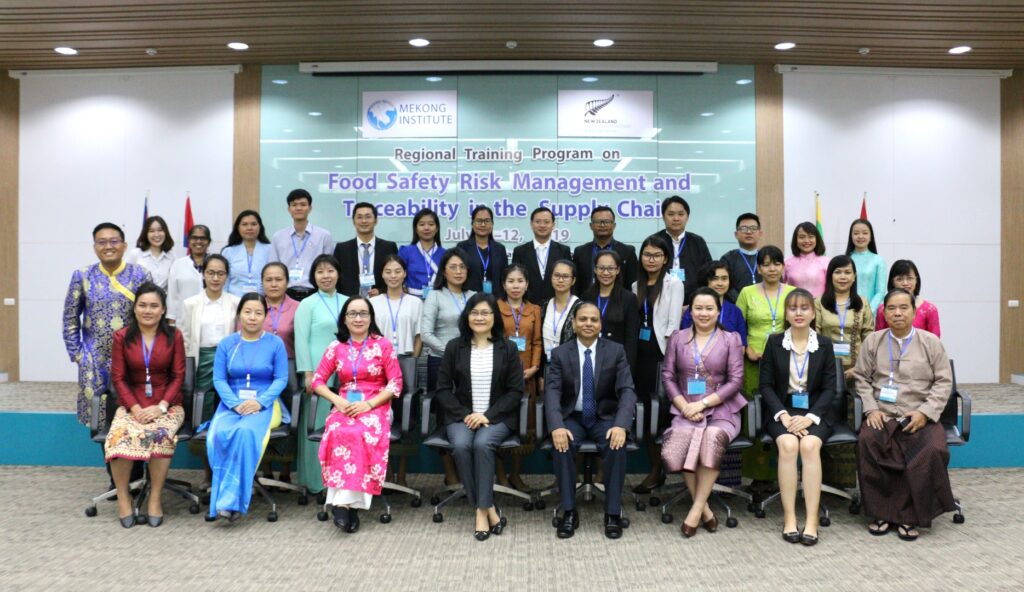Mekong Institute’s PROSAFE Project opens today the 10-day regional training program on Food Safety Risk Management and Traceability in the Supply Chain at MI’s Residential Training Center in Khon Kaen, Thailand. The course is the fifth in a series of food safety training programs organized with the support of the New Zealand Aid Programme (NZAP).
Gathering 27 participants from key food safety agencies, academic institutions and food safety enterprises from Cambodia, Lao PDR, Myanmar and Vietnam (CLMV), the program is designed to broaden awareness on multi-stakeholder approaches in the management of food safety risks, as well as build skills in the application of risk-based approaches in responding to food safety concerns.
Speaking on behalf of MI Executive Director Dr. Watcharas Leelawath, Mr. Sudam Pawar, Director of the Innovation and Technological Connectivity Department pointed to the crucial role of the participants in championing food safety in their respective countries by sharing information with community and government stakeholders.
The importance of food safety risk management is given further focus with the establishment of the ASEAN Risk Assessment Centre and the ASEAN Rapid Alert System for Food and Feed, putting countries in the region in a better position to advance capacity building requirements in risk assessment. The said training sets out to complement regional efforts and address gaps in risk management and risk managers’ capacity, while enriching the roster of training programs under the PROSAFE Project, a five-year initiative that seeks to strengthen technical support and scale-up regional and local capacity building initiatives to promote significant changes in food safety perception and practices in CLMV.








